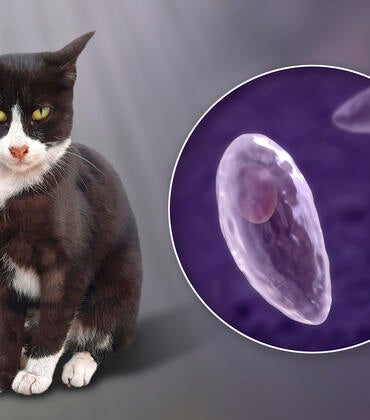
Faculty in the School of Medicine at the University of California, Riverside, have recently received grants to increase diversity in biomedical sciences, investigate the impact of incentives on clinical trial participation, and design an intervention to encourage Pacific Islanders to seek mental health treatment.
In collaboration with the UCR graduate programs in biomedical sciences and neuroscience, Byron Ford, a professor of biomedical sciences, has received a grant of $269,000 from the University of California-Historically Black Colleges and Universities, or UC-HBCU, Initiative for a project titled “Pathway to Biomedical Science and Neuroscience.”
African Americans make up only 2.8% of students who enrolled in UC academic doctoral programs between 2010-15. The UC Office of the President launched the UC-HBCU Initiative to improve diversity and strengthen UC graduate programs by investing in relationships between UC faculty and HBCUs. The program includes year-round mentoring for HBCU students and collaborative opportunities with UCR faculty; a paid, eight-week summer research experience at UCR; and a guaranteed fellowship for four-six years if accepted into any UC doctoral program.
The three-year grant is a partnership with Morehouse College, Spelman College, the Morehouse School of Medicine, and Fort Valley State University, Ford said.
“As a product of HBCUs and a former faculty member at an HBCU, the goals of this program are very dear and personal to me,” he added. “In light of the Black Lives Matter movement and the killing of George Floyd, Breonna Taylor and others, it is my hope this program will contribute to removing institutional barriers for Black and African-American students to achieve successful careers in science.”
Brandon J. Brown, an associate professor in the Department of Social Medicine, Population, and Public Health, has received a two-year grant of $266,000 from the multinational pharmaceutical company Merck to study the impact of payment on people’s decision to participate in biomedical HIV research. The terms of this award are being negotiated.
“This study will explore a big unanswered question in research: How do we make decisions on what to pay research participants, what’s appropriate as compensation, and how does payment impact research participation?” Brown said. “Our objective is to investigate the impact of incentives on clinical trial participation. Little is known about this topic; while some ethics guidance exists on payment in research, there is no understanding of how key stakeholders view and consider incentives in research projects.”
Although Brown plans to work only with the HIV community for this work, the lessons from the project and the tools developed are expected to be transferable to other areas of research.
“Given the many co-morbidities associated with HIV, we will integrate the top three — depression, heart disease, arthritis — into the proposed study,” Brown said.
The title of the project is “Evaluating the impact of incentives on clinical trial participation.”
Andrew M. Subica, an assistant professor in the Department of Social Medicine, Population, and Public Health, has been awarded a three-year intervention development grant of $723,000 from the National Institute of Mental Health, or NIMH, to design and pilot test a novel culturally tailored intervention to increase Pacific Islanders’ use of mental health treatment.
Previously, Subica performed an exploratory study funded by the NIMH that found the levels of depression, anxiety, alcohol use disorder, as well as the need for treatment were extraordinarily high in Pacific Islander communities. The study also confirmed that members of these communities typically will not seek treatment to address these needs.
With the new NIMH grant, Subica will use the data collected on Pacific Islanders’ mental health needs and barriers to treatment to create the novel intervention from existing evidence-based practices.
“We are calling our intervention ‘Talking Story,’” Subica said. “Pacific Islanders, who are innate storytellers, reported in our earlier study that an effective mental health treatment-seeking intervention should use stories to convey important information about mental health treatment rather than lectures, presentations, or even testimonials. As a result, this new project will hire Pacific Islander actors to create brief narrative films of different scenarios that address Pacific Islanders’ stigma, limited knowledge of the treatment process, and warranted cultural mistrust of Western treatment services.”
The project, titled “Engaging Pacific Islanders in Mental Health Treatment Services,” will be conducted in partnership with the Office of Samoan Affairs and Motivation Action Leadership Opportunity; Bruce Link at the UCR School of Public Policy; Nia Aitaoto at the University of Utah; Scott Okamoto at the Hawaii Pacific University; Sheila Murphy at the University of Southern California; Erin Kelly at Thomas Jefferson University; and Matthew Yamashita at Quazifilms.
Research reported here was supported by the National Institute of Mental Health of the National Institutes of Health under Award Number R34MH122641. The content is solely the responsibility of the authors and does not necessarily represent the official views of the National Institutes of Health.






